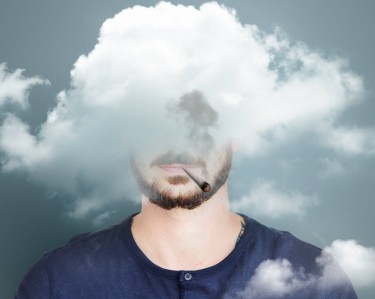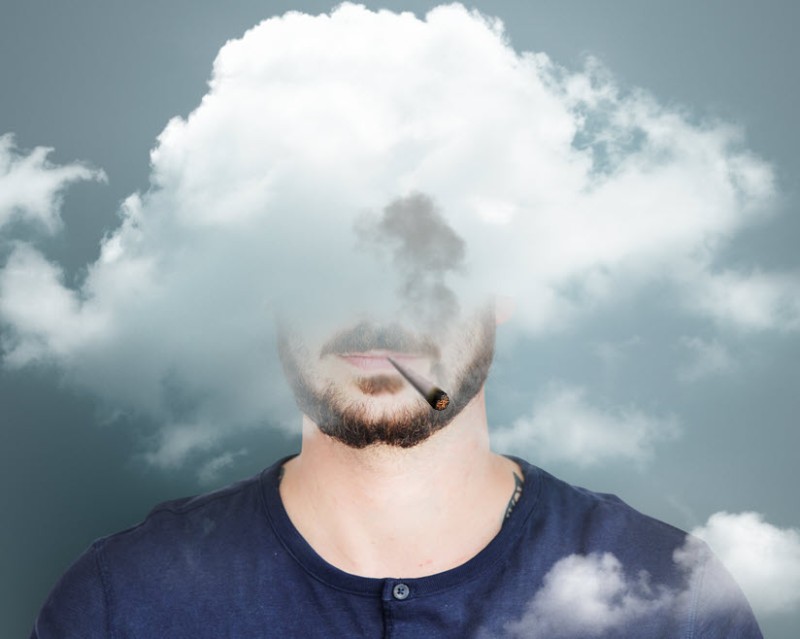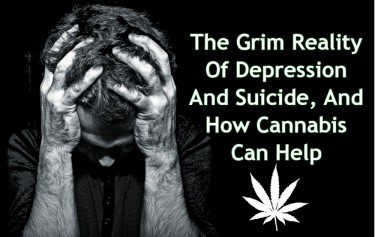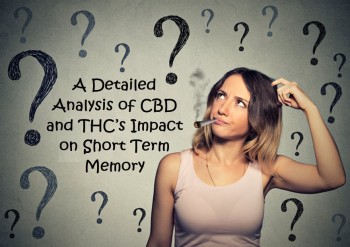
Cannabis Products Reduced Symptoms of Depression for Up to 6 Months
Depression is a prevalent mental illness that results in enduring emotions of melancholy, hopelessness, and a lack of enthusiasm or enjoyment for activities. The World Health Organization (WHO) estimates that 264 million people of all ages are affected by depression, which is the primary cause of disability globally. Additionally, it significantly increases the burden of disease on the planet. According to estimates, roughly 7% of individuals in the US experience significant depression in a given year, and 20% will go through a major depressive episode at some point in their lives.
A new study is looking into whether cannabis can be an effective treatment for depression and it seems that indeed there are some positive outcomes.
In this article, we’re going to be checking out the study in more detail and try to make sense of it all.
So first…
Plain Summary of Study via the Authors:
This is taken directly from the study itself.
Depression is a highly prevalent mental health condition with approximately one in five people affected by at least one episode of depression in their lifetime. Two cardinal symptoms of depression are low mood and loss of interest. Since depression is such a debilitating condition, improving quality of life is an important part of treatment. Antidepressant medications are currently an important part of treating depression, but the variability in their effectiveness means that there is a need for alternative treatments. Medicinal cannabis, which contains certain chemicals from the cannabis plant, has received growing interest as a potential novel treatment for depression. Due to the lack of clinical studies on the use of medicinal cannabis to treat depression, this study aims to assess the effects of medicinal cannabis on quality of life in patients suffering from depression. The study included 129 patients treated with medicinal cannabis for depression at Sapphire Medical Clinics. The results showed that medicinal cannabis was associated with improvements in depression and anxiety symptoms, as well as health-related quality of life, and sleep quality after 1, 3, and 6 months of treatment. Although there were numerous adverse events in a small number of patients, most of these were mild or moderate. A major limitation is that this study cannot determine the extent to which medicinal cannabis is directly responsible for the improvements in depression symptoms that were observed. Future studies should focus on conducting clinical trials, which can better evaluate the true treatment effects of medicinal cannabis for depression.
SOURCE: https://pubmed.ncbi.nlm.nih.gov/36573268/
To understand how they achieved this, we can take a closer look at their Methods:
Data on the usage of medical cannabis to treat certain diseases is being gathered by the UK Medical Cannabis Registry. The PHQ-9 and GAD-7 measures, the SQS scale, and the EQ-5D-5 L scale were used by the researchers to track changes in the patients' mental health, sleep quality, and general quality of life over the course of 1, 3, and 6 months. Any unfavorable incidents that happened during this time were also noted. This data is being used by researchers to determine whether medical marijuana is safe to use and whether it can improve these outcomes.
In terms of results;
There was a research done with 129 people who had mental health problems. Their average level of depression severity at the beginning of the trial was 16 out of 27. The average level of their depression fell to 8 after a month of therapy. This decline persisted even three and six months into the treatment. At one, three, and six months after starting the treatment, there were also improvements in anxiety, sleep quality, and general quality of life. 14% of the patients experienced 153 side effects in total, with 87% of these being mild or moderate in severity.
As you can see, this is clear correlation that cannabis actually does have a positive impact on things like depression. While this isn’t a causal link, it does provide some significant insights on how we could potentially use cannabis to help people with depression.
Pharma’s explanation of Depression is lacking…
Many people think that a chemical imbalance in the brain—specifically, an imbalance of neurotransmitters like serotonin and dopamine—is what causes depression.
Science does not provide evidence to support this theory, nevertheless. Antidepressants, which treat depression by changing the amounts of neurotransmitters in the brain, can be helpful treatments, but they are not a panacea and they are not successful for everyone. In reality, the underlying causes of depression are likely to be far more nuanced and may combine psychological, environmental, and hereditary elements. It's also critical to remember that depression is an illness that may present itself in various ways depending on the individual.
In fact, the idea of “Chemical Imbalance” was promoted by the pharmaceutical industry to sell anti-depressants, which inhibit certain neurotransmitters.
Depression is often a result of obsessive fixation on the things that are wrong in our lives. Some of these things may be legitimate, others might be fabricated by the mind.
For example, “getting depressed because your team lost” is a fabricated “issue” that probably stems from a deeper psychological issue of rejection or loss.
However, getting depressed because your dog died is a non-fabricated depression which stems from the loss of someone close to you. There may even be a neurological reason why you feel depressed since the loss of someone will literally alter your brain.
This is due to neural networks needing to rewire interactions.
The brain's neural networks, which are made up of interconnected networks of neurons, process and transfer information. There are billions of neurons in these networks, which are cells that exchange electrical and chemical messages with one another.
Neural plasticity is the process by which neural networks in the brain grow stronger. This is a reference to the brain's capacity to modify and adapt in response to brand-new encounters, knowledge, and surroundings. Our brain networks are active and new connections between neurons are made when we encounter something new or learn something new. Through repetition and reinforcement, these ties can progressively get stronger.
For instance, our brains build new connections between neurons in the regions of the brain in charge of processing movement and sound when we learn a new ability, like playing an instrument. These connections get stronger as we practice, making it possible for us to do the task more quickly and precisely.
Genetics, age, and environmental elements like stress and sleep are just a few of the variables that can affect how strong neural networks are in the brain. According to research, engaging in mentally stimulating activities, acquiring new skills, and regular physical activity can all assist to develop neural networks in the brain.
No imagine – you lived with your pet for 15 years, building neural networks and suddenly – they no longer are “needed” to the same degree. They begin to atrophy and the physical structure of your neurons begin to shift into a new configuration.
We experience this as grief and emotional pain – but it’s very much based in a real event.
Irrespective of whether it’s fabricated or real – depression can sneak its way into our lives and it doesn’t have a thing to do with serotonin or dopamine. It can, but it doesn’t have to be that way.
Cannabis, helps with this process.
According to some research, cannabis may have a positive impact on neuroplasticity, the brain's capacity to alter and adapt in response to new experiences or environmental changes. For instance, a 2016 study in the journal Neuropsychopharmacology discovered that THC, a psychoactive ingredient in cannabis, may boost neuroplasticity and make it easier for the brain to build new neural connections. Another investigation conducted in 2018 and reported in the journal Cerebral Cortex suggested that CBD, another cannabinoid included in cannabis, may encourage neuroplasticity and guard against brain damage brought on by stroke or other types of trauma.
This means, it can potentially help facilitate the process of adaptation. Helping mitigate the side effects of depression while boosting its ability to incorporate the experience and “make peace” with it.
Of course, there isn’t any casual evidence for this, it certainly has more validity on Pharma’s claim of “imbalanced neurochemistry”.
In all likeliness, they are all side effects of one another – but the point is that there is evidence to suggest that cannabis helps with depression.
This doesn’t mean that you don’t have to do the work. It’s hard going through a rough patch, but ultimately we suffer because of our attachments to the concepts in our heads.
Once we make peace, we move on!
In the meanwhile – a toke of some good Cheeba can get you through the darkest moments. So says Science!
MORE ON WEED FOR DEPRESSION, READ ON...
HOW MEDICAL MARIJUANA IS HELPING WITH DEPERSSION AND SUICIDE






